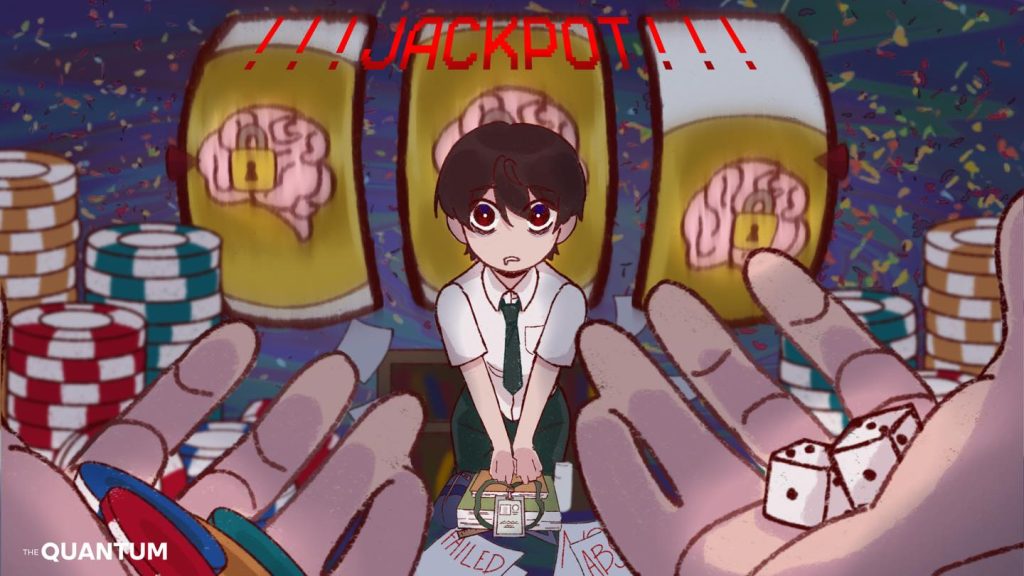by: Henry Clark Cabigon
Graphics by: FreAnne Grace Tenedor
Copyedited by: Joebbie Gaugano

When we are still children and even now as adolescents, we learn and develop, not by dictation but by experience. As the Swiss psychologist Jean Piaget says, “Play is the work of childhood,” reiterating that playing is not just a way for children to pass time or have fun but also their most important form of learning and development. But what if this play is not the conventional, traditional definition of playing with friends on the streets but rather on the dangerous abyss of online clicks, dice, and bets, which is online gambling?
Currently, authorities are taking a step against this dangerous platform if unregulated. Government agencies like PAGCOR and lawmakers such as Senator Zubiri have filed bills to impose stricter regulations to shield minors from these predatory platforms. PAGCOR, on the other hand, orders the takedown of ads pushing gambling on billboards, aiming to eradicate its pushy and encouraging narratives. These efforts, blocking websites and demanding better age verification, are a crucial first line of defense.
This digital form of gambling poses a more complex and unpredictable danger to young people today. Unlike physical casinos that have bouncers and stricter rules, online gambling is open around the clock and accessible from anywhere, including homes and public spaces, using only a smartphone. These sites, using creative graphics and exciting sound effects, are carefully made to appeal to young people, making it difficult to distinguish between real gambling and the mobile games we already enjoy. This transforms the idea of play from a fun, social activity into a lonely, high-stakes obsession that removes the value of patience and hard work, replacing them with the lie of easy money. These then turn into debt, failing grades, anxiety, and a diminished pathway to a better future.
However, this is not a problem the government can solve alone. The internet is vast, and for every illegal site that is taken down, another can rise almost instantly. The fight against online gambling cannot just be won in Congress; it must also be taught in our homes and classrooms.
The ultimate defense against this digital threat requires a united effort from all of us. For parents, it means having open, honest conversations about the real dangers hiding behind these screens and being aware of their children’s online activities. For our schools, it means integrating digital and financial literacy into the instruction, teaching students how to see past the marketing gimmicks and understand the consequences when we try to play with online gambling. And for us, the youth, it means being vigilant protectors of our own well-being and that of our friends, because if we don’t take a stand now, we may be gambling away not just money, but our very future.



